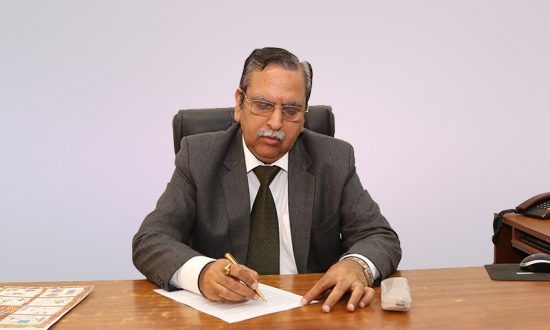Prakash Chhabra has been working as Executive Director with Sanskriti Group since 2012. He began his career with Syndicate Bank as a PO and rose to the level of Chief Manager and has thereon successfully risen by handling multidimensional assignments. Prakash Chhabra also worked as Circle Head, Delhi with a private sector bank. On joining an educational institution, he has been heading all the primary functions in the education sector at various points in time. Before joining Sanskriti, he was associated with Tecnia Institute of Advanced Studies as a Professor and Director. He has a strong sense of business development and is a professional with a CFA and MBA (Finance) focused on Banking, Corporate, Finance, and Securities analysis from ICFAI.
The recent economic crisis has focused a spotlight on the need for financial decision-making in times when the economy is uncertain. Our school education system failed at preparing students for financial crises in adulthood. Successful professionals who have worked successfully in their chosen path with skills have no idea how finance and investments work. The reason behind this is personal finance is not a part of our curriculum in school or college.
Now as the economy begins to recover and coming back on track, it is important to improve financial literacy. Well, there is no specific age to start learning but educators should start teaching basic financial knowledge to students as soon as they feel the kid is ready. Research also shows that children who learn to manage finance at a younger age will be able to handle it better as adults. Strong mindset and good financial habits are crucial for everyone and it can be taught from an early age.
There is a need of having basic personal financial skills so that one can live a happy, secure and healthy life, as every step a person takes is directly or indirectly connected to the fact of how well one can manage money. It cannot be learnt overnight; experience and habits are really important and one can start with basics by making a budget regarding spending and savings. Hance early exposure to financial affairs along with proper guidance is crucial.
There is an urgent need to include Financial management and Investment in curriculum because: –
1. You need to manage it at the level of your life: – From graduation to retirement every step related to investment is going to directly or indirectly affect our lifestyle. Finance plays an important role in deciding our career, getting married, buying a house and many other life events. Finance is a part of our everyday life from what we eat to how we live. At our young age we lack the experience and knowledge to make these decisions whether big or small.
2. Lack of financial knowledge has painful consequences: – wrong decisions can be painful at the end of our working life and we can only regret the kind of financial decisions we made. It can be stressful for adults. Lack of savings or funds can cause a lot of hardship in one’s life and can create many other problems.
3. Proper financial management leads to a healthier life: – According to survey half of the millennials feel their financial illiteracy is holding them back from making proper financial decisions. It is becoming a speed breaker in utilizing their full potential.
4. It is the need of the hour to teach personal finance in schools: – Many adults feel students should be taught in schools about financial management. It is a good age where they start with basics and can expand their horizon in the field of financial management.
5. It is where they can learn: – School is the place where we learn about many lessons of our life and it is the best place to learn about personal finance.
Thus for inculcating the habit of savings, improving financial literacy and making children responsible, financial education is necessary, it helps them to keep a check on spending.




